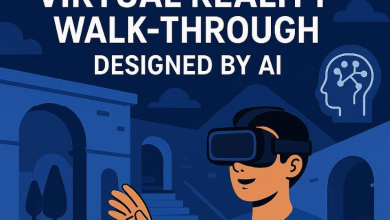Net-Neutrality and You: How to Navigate the Internet in 2021

The internet has never been, strictly speaking, a safe place. The open access to information that makes the internet so convenient and accessible for everybody also means that it is a place where the information of others is inherently vulnerable. Cybercriminals troll public access networks looking for unsuspecting victims, internet service providers (ISPs) and companies track your activity across websites without permission and sell your information to the highest bidder, and below the board deals between service companies and ISPs mean that you don’t even have unrestricted access to the services you choose to employ.
The creation of the World-Wide-Web is one of the most significant events in human history, allowing unprecedented access to information and a sandbox for would-be innovators to play in. But since its advent, it has become progressively less and less free, and companies spend billions vying to purchase their own corner of your digital space. You might be wondering, in the midst of this increasingly corporatized digital landscape, how to stand your ground and insist that your data be kept private.
If online privacy is a concern for you, consider looking into employing the services of a virtual private network, or VPN.
Net-Neutrality: A History
So why choose to get a VPN now? As it turns out, with the slow, sneaky stripping away of net-neutrality protections, there’s never been a better time.
Net-neutrality refers to a series of protections meant to keep ISPs from restricting consumers’ access to legal online content and services, setting the intended democracy of the internet in stone. As it turns out, net-neutrality laws were originally founded because ISPs were restricting customer’s abilities to use VPNs or Wi-Fi routers to improve their service. Net-neutrality put strict boundaries on how ISPs could infringe on customer rights and prevented ISPs from slowing down bandwidth when customers accessed certain services or restricting what kinds of devices they could connect to their networks.
Unfortunately, the FCC recently took a bulldozer to stone and started stripping away those laws, claiming that they were interfering with a free digital market. In doing so, the FCC has given power back to the ISPs at the consumers’ expense, allowing for a subversive rebuilding of formerly illegal trusts and stripping away any other government agency’s right to curb ISPs.
This doesn’t mean that you can’t surf the web safely or without the interference of these ISPs. It just means you can’t count on the government to protect your rights anymore. You have to take the security of your data and your right to use the internet your own way into your own hands.
VPN’s: What Are They Good For?
One way to do that is to employ a VPN or virtual private network. A VPN is a private server your computer can connect to that acts as a secure, encrypted channel through which you can browse the internet unbothered. Companies cannot track you across websites, people with malicious intent can’t steal your data, and your activity will even be hidden from your ISP as VPNs cloak your IP address. VPNs can even alter your IP address to give you access to resources that are blocked in your country: using a VPN, you’ll be able to browse Netflix selections in France, or even see what’s on Hulu in Australia.
In addition to keeping your data safe, VPNs also negate a lot of the concerns surrounding the dismantling of net neutrality. Concerned about that website you just visited tracking you and selling the information on which websites you visited next to another corporation? They can’t track you anymore. What about using Spotify on a network that was paid to fast-track another music service? They won’t know what service you’re using to listen to music.
As a side note, for the best protection available, consider using a VPN that can work across multiple devices, like your SmartTV, Roku, or Amazon FireStick.
Safe, Reliable Internet Surfing
Net-neutrality laws may make a return one day, but it seems unlikely with how thoroughly they were dismantled by the FCC. In the meantime, you should treat the digital landscape like an apocalyptic wasteland, a place ruled by those with the most resources and where the little man has little power. To properly protect yourself and your data, you’ll want to tap into the best resources available – and that just might mean getting yourself a VPN. Stay safe out there friends.





